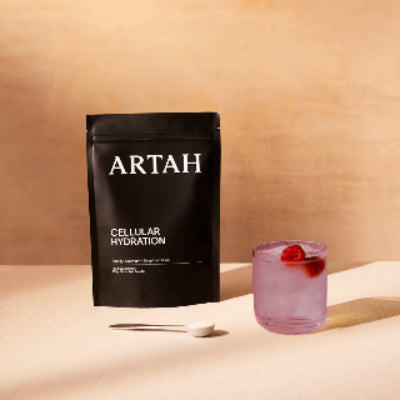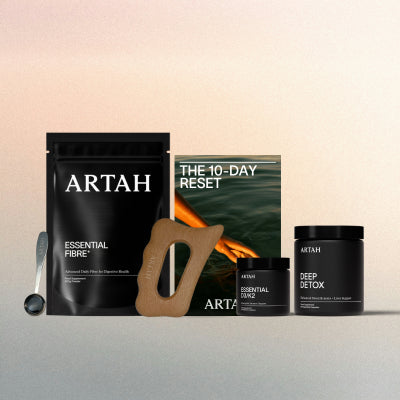Collagen is the main structural protein in our connective tissue and extracellular matrix, making it important for not only the skin but also muscle, bones and joints.
The proteins in collagen also help build keratin, so it can also be beneficial for hair and nails as well, which is why it’s so hot in the world of ingestible beauty products right now. Whilst the collagen market is gaining huge traction and the converted are swearing by it, there are still collagen critics who say it's a waste of money.
So, should we invest in it or ignore it? Turns out, the data is promising. A 2019 systematic review of randomised, placebo-controlled clinical trials reviewing the results from over 800 participants showed that oral collagen supplements did improve wound healing, signs of ageing, skin elasticity, hydration, and dermal collagen density. BUT, like everything in the world of nutrition and supplementation, it depends on the form. We say invest – but here’s what you need to know first.
You need cofactors to make it effective
We don’t absorb collagen in its whole form; it’s first digested and broken down into amino acids, which are the raw materials needed to build any type of protein. But, we also need the cofactors that are involved in collagen synthesis in order for this process to be effective. These include Vitamin C, Vitamin A, Zinc, Hyaluronic Acid and Copper. If you’re taking collagen peptides without the correct cofactors, you’re unlikely to see a result. In addition, nutrients like Vitamin A improve skin quality and have been shown to reduce fine lines (think of it as your ingestible retinol), which will elevate your results with smaller doses of collagen needed.
AGE degrades collagen
It’s well known that the quality of our nutrition will impact the appearance and health of our skin. There are specific factors, however, that impact collagen directly. Advanced glycation end-products (AGE) are harmful compounds formed when proteins and fats combine with sugar in the body (a process called glycation). This isn’t the only way AGEs are formed. Cooking at high heat — more specifically, charring and browning — create them in high amounts. Our body is equipped to deal with AGEs in moderation, but when they are in excess, they will start to accumulate, and we will begin to see the implications on our metabolic health, disease risk and skin quality. AGEs have been shown to inhibit collagen synthesis, accelerate the degradation of collagen, and result in loss of skin elasticity. This is one of the reasons why many people see such a drastic improvement in their skin they reduce sugar in their diet. In addition to moderating sugar and charring through your food intake, antioxidant vitamins and plant phenols like grape seed extract can help prevent damage from AGEs.
Stress halts collagen formation
Stress ages us – emotionally, physically, and aesthetically. Turns out that chronically elevated cortisol can inhibit collagen formation and accelerate collagen breakdown, in addition to the many other ways it impacts our health. Alcohol is another culprit that compounds the effects of stress. A stressor itself, it also causes dehydration, loss of nutrients and, in higher more frequent amounts, systemic inflammation. Our skin can bounce back relatively quickly if we proactively address these factors, so reducing alcohol and ensuring that you rehydrate and replenish nutrients afterwards can help lessen its effects if a total reduction isn’t on the cards.
Improving skin barrier + hydration can be more helpful
Collagen itself can be hydrating, but our skin's cellular processes, including turnover, collagen synthesis, and skin barrier function also require hydration. Without it, our ability to synthesise collagen will be compromised. This means that electrolyte balance, hyaluronic acid, and lipid membrane function should be a part of your skincare regime. The key omega 3 fats – EPA and DHA, are essential for smooth skin, and GLA can also specifically affect the skin by improving inflammation and skin barrier integrity.
Skin Clinic
With ingestible retinol, hyaluronic acid, essential cofactors (A, C, Copper, Se), hydrolysed collagen peptides and anti-inflammatory botanicals, our award-nominated formulation takes a holistic approach and ticks all the boxes when it comes to skincare.





















































